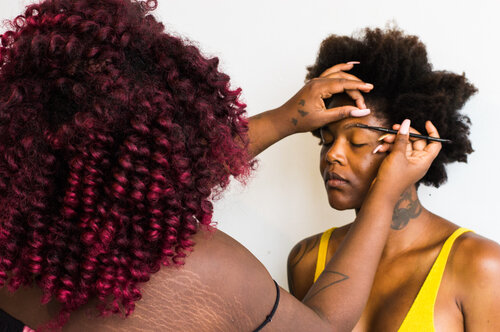- About
- Topics
- Picks
- Audio
- Story
- In-Depth
- Opinion
- News
- Donate
- Signup for our newsletterOur Editors' Best Picks.Send
Read, Debate: Engage.
Every 26 hours, one LGBTQI person dies in Brazil as a result of homophobia or transphobia, according to Gay Group from Bahia, in its Annual Report of Violent LGBTQI Deaths. Last year the country had 329 deaths by murder or suicide, putting Brazil once more on top of the violence podium against this population. Despite a small drop comparing to 2018 and 2017, with 420 and 445 cases, respectively, the trend over the decades shows a high increase in the annual average.
The hate crimes, indeed, represent a portion of the population who, even decades after the first LGBTQI pro-rights movements, do not accept non-hetero-normative behaviour. The results are on the report The Global Divide on Homosexuality Persists, published by the Pew Research Center last week. It is a huge X-ray on homosexuality acceptance worldwide. In Brazil, 67 per cent of people say same-sex relationships should be accepted by society, while neighbouring Argentina is more tolerant, with a 76 per cent rate.
It is important to observe, however, that despite holding the title of the country which kills the most LGBTQI people, Brazil is not so openly conservative compared to Eastern Europe, Asia or Africa, for example, which reach slow acceptance rates such as 14 per cent in Ukraine and Russia. Indonesia and Nigeria, in turn, are even less tolerant, with only 9 per cent and 7 per cent respectively. Remembering that in many places being a homosexual or transgender is considered a crime, and in many others, there are severe restrictions to the right of expression, while Brazil has protective laws. So, the question is: where is the gap between social acceptance and the right to live?
In general, though, there has been a great advance in how people see the LGBTQI community, in almost all countries, including Latin Americans, according to the Pew Research Center. The good news come also from legislative houses and courts. Concomitantly with the hardening of hate discourse, especially under Jair Bolsonaro’s administration, who once affirmed he would prefer a dead son to a gay one, Brazilians recently achieved two more rights. First, in 2019, the Supreme Court ruled that homophobia is a crime similar to racism. In May 2020, the ban on gay people donating blood was repealed. The topic was under discussion over the past three years and the high necessity, together with low supply of blood due to COVID-19, accelerated the decision. While other parts of the world see setbacks for the rights of LGBTQI persons (and especially trans), each step has to be celebrated.
Nonetheless, in different ways and intensities, living a life out of heteronormativity is still a day to day struggle, even harder if one faces intersectionality, that is, a double prejudice for being also black or a woman, for example, leading to situations such as even less access to education and the formal labour market. So, from the last days of the LGBTQI Internacional Pride Month onwards, it is urgent to remember that activism must not, and will not stop until all of us have the right to live to be proud of ourselves.
Image by StockSnap

